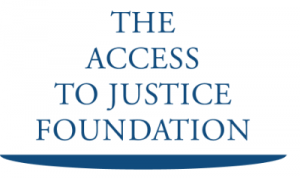Exploring Online Dispute Resolution Workshops
We are currently working as part of a consortium with the SRA and The Law Society of England and Wales on the Regulators Pioneer Fund Phase 3 (RPF3) project exploring the potential of online dispute resolution (ODR) to address unmet legal need.
We are conducting a series of roundtables with key stakeholders to understand more about the barriers to users and providers in accessing and delivering ODR and discuss potential solutions to address these challenges.
Register for the workshops below
- Employment disputes – consumers and service providers: Monday 15 July, 10am-12pm – Register here
- Frontline free legal advice providers: Wednesday 17 July, 10am-12pm – Register here
- Housing disputes – consumers and service providers: Tuesday 23 July 10am-12pm – Register here
- Micro and small companies disputes – consumers and service providers: Wednesday 24 July, 10am-12pm – Register here
- Dispute resolution tool developers: Tuesday 30 July, 10am-12:30pm – Register here
We’re looking for stakeholders with an interest in supporting users to access and navigate support and advice to resolve their legal issues to share their experiences and expertise.
Please sign up for the workshop(s) you would like to contribute to. If you have any questions about the sessions or the RPF3 programme, please contact Martha de la Roche.
Background
The RPF3 project is exploring the potential of ODR in addressing the unmet legal needs of individuals, consumers, and SMEs and aims to understand what development, design, and implementation practices can address the barriers to uptake of ODR for those in need.
For the purposes of this project, ODR is defined as a digital platform or tool that actively facilitates the resolution of disputes between two or more parties by providing a structured and interactive environment. This can include one or more of the following features:
- Each party can present their case or claim in a manner that is accessible to the other parties involved,
- Parties are enabled and encouraged to engage in negotiations directly or through guided processes,
- A mutually agreeable settlement can be reached and formally defined,
- The entire process is moderated or assisted by an impartial third-party facilitator, who interacts with all parties to ensure fairness and to aid in conflict resolution.
Based on the research analysis the project has conducted over the last six months, we know that ODR presents opportunities to enhance access to justice, but that gaps exist, particularly for marginalised users, consumers, and small businesses with disputes that do not fit into existing frameworks.
We’re please to be working as part of a collaborative consortium together with the Solicitors Regulation Authority, and The Law Society of England and Wales to deliver the RPF3 programme.
